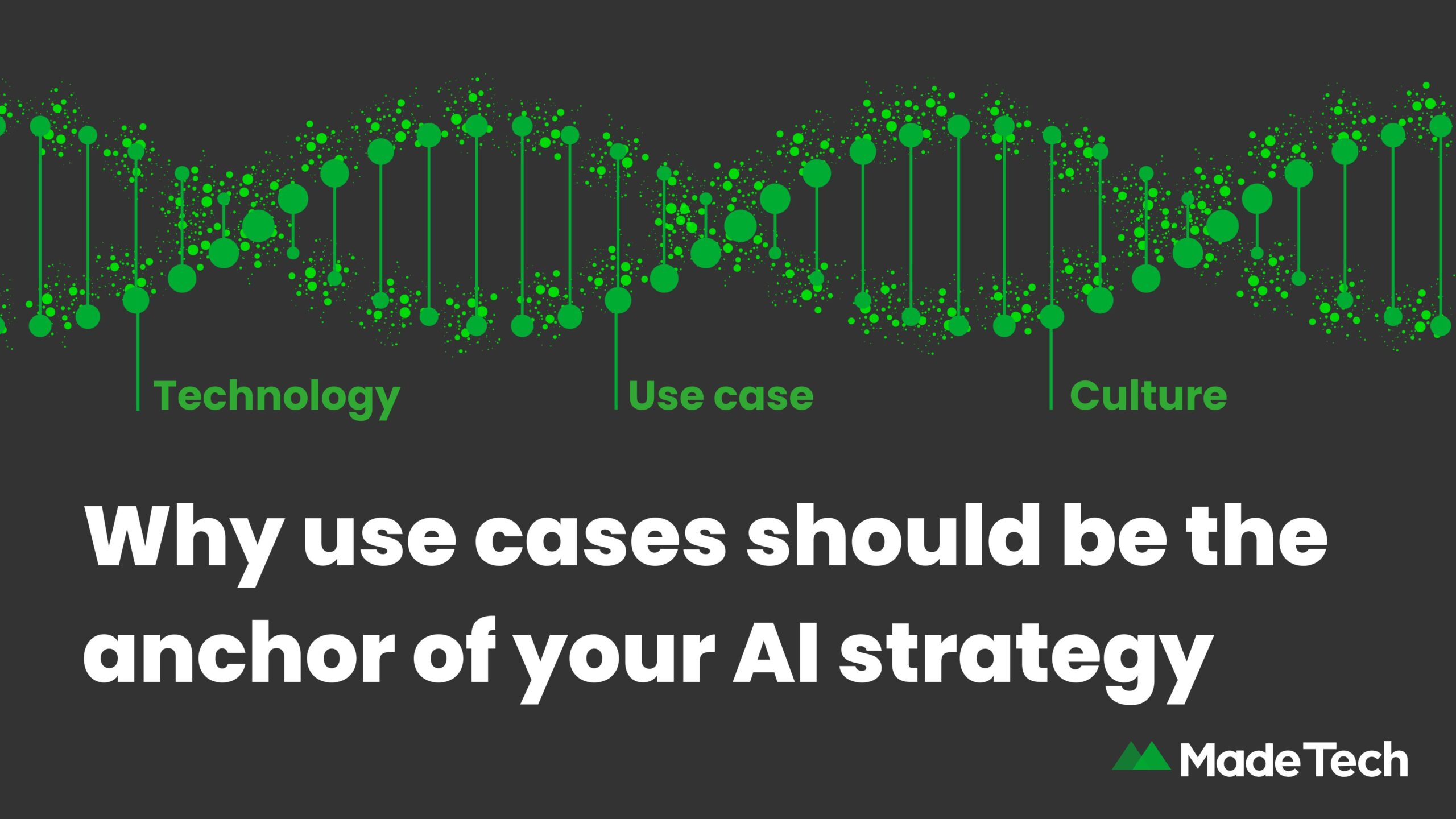Imagine a single mapping or integration error leading to a patient receiving the wrong medication. In the world of health technology, these aren’t just hypothetical scenarios. They’re potential realities which could lead to life-changing consequences. That’s where clinical assurance comes in.
A critical but often behind-the-scenes process that ensures digital health solutions are safe, reliable, and effective. In this blog post, I’ll share my thoughts on the vital role of clinical assurance, its impact on health and care and why I believe it should be a priority for anyone involved in developing or using health tech.
What is clinical assurance?
Clinical assurance is about making absolutely sure that the digital health and care systems and applications that are build and deployed are safe and effective for their intended use. As Baroness Gillian Merron, Minister for Patient Safety, recently stated:
It is important that there are robust safety standards in digital health to keep apace with new technologies as they evolve.”
You can read more about the Department of Health and Social Care’s review of clinical risk standards here.
It’s not just about whether the technology works (that’s technical assurance). It’s also about the potential impact on actual patient care. This includes adhering to mandated standards and guidelines, such as DCB0129 and DCB0160, which set out the approach, framework and guidance for those working in a digital health and care capacity. Essentially, clinical assurance is about minimising the risk of hazards or unintended consequences that could lead to increased harm to patients through the use of the digital solution.
Why clinical assurance matters
Patient safety first: To me, clinical assurance is fundamentally about protecting patients. A seemingly small error in a health tech system could have serious implications, from medication mistakes to incorrect diagnoses and so on.
Reducing risk: Clinical assurance helps reduce risks for healthcare providers and organisations. By carefully evaluating and testing systems, potential hazards and issues can be identified and mitigated before they impact patient care.
Compliance and standards: Adhering to NHS guidelines and industry standards is crucial in the health and care sector. Clinical assurance ensures that digital teams build solutions that meet these requirements.
Building trust: A strong focus on clinical assurance provides trust among health and care providers, patients and other stakeholders. It demonstrates a commitment to safety and quality.
The challenges of clinical assurance
Making sure digital health tools are safe and effective isn’t always easy. That’s why we’re partnering with Digisafe to raise the bar for clinical safety. Together, we’re committed to meeting the high standards the NHS demands from its suppliers and healthcare organisations. Because patients, professionals, and the public deserve more than “safe enough.” They deserve digital health tools that are trusted, tested and built with clinical safety at the core – not as a tick-box.
That’s the standard we’re setting – and the culture we’re building.
Solving complex challenges together
Here are some of the main challenges we’re tackling and where our joint expertise can really make a difference:
- Specialised knowledge and skills
Clinical assurance needs experts who understand both technology and healthcare. This means knowing software development and system integration, as well as clinical workflows, medical terms, and regulations. Finding and keeping people with this mix of skills can be tough. - Continuous learning
Healthcare rules, standards and technology change all the time. Teams need to keep learning to make sure they’re following the latest guidelines and using the best methods. This includes understanding changes to standards like DCB0129 and DCB0160 and keeping up with best practices in digital health. - Handling complexity
Healthcare systems are complicated, with many moving parts and stakeholders. Getting everything to work together smoothly, and making sure patient data is protected at every step, requires careful planning and good communication. Teams need to understand how systems interact and identify risks at every stage. - Balancing speed and accuracy
In tech projects, there’s often pressure to work quickly. But with health tech, you can’t cut corners on safety. Finding the right balance between speed and thoroughness is crucial. The challenge is to maintain rigorous checks without slowing things down too much. - Overcoming resistance to change
Introducing clinical assurance may mean changing existing workflows, which some people may resist. Encouraging a culture of safety and quality is key to making sure everyone is on board.
As Rebecca Wilson from Digisafe puts it, embedding clinical safety in digital health isn’t just about compliance – it’s about doing things right, together.
By working with Made Tech, we’re not just combining expertise, we’re bringing our teams together to raise awareness, embed the right culture, and put clinical safety at the heart of digital transformation. It’s about more than standards and systems. It’s about people – creating the right processes with and for them.”
For Rebecca, ensuring safety means enabling frontline staff and citizens to use digital tools confidently and effectively. That’s why this partnership focuses on supporting organisations to navigate complexity and meet NHS expectations – not as a checkbox exercise, but as a genuine commitment to safe, impactful delivery.
“Safety isn’t a barrier to innovation. It’s the foundation for trust, impact and better outcomes for everyone.”
Clinical assurance in action
Here are a couple of examples of how we’ve used clinical assurance in our work:
Moving patient records online
Imagine 50 million paper health records stored in warehouses, inaccessible to doctors when needed most. That was the reality of the Lloyd George records – paper-based patient records didn’t link to modern electronic systems. Our team built a digital platform to store and manage these records securely, making them readily accessible to clinicians.
Clinical assurance was at the heart of this project. We had to make sure that we digitised records accurately and preserved patient data integrity. Also that the transition to digital records didn’t introduce risks. Without rigorous clinical assurance, errors in data transfer could have led to misdiagnoses or delayed treatment.
Connecting healthcare systems with direct care APIs
Today’s healthcare system relies on a web of digital services, from GP records to hospital databases. APIs (Application Programming Interfaces) enable these systems to communicate and share data efficiently. However, any mistake in how data is transferred (such as missing allergy information) could have life-threatening consequences.
One of our key projects involved ensuring that APIs connecting GP systems with third-party software providers were clinically safe. By applying rigorous clinical assurance checks, we ensured that these APIs worked reliably and securely, supporting safe and efficient patient care.
Why everyone should care about clinical assurance
Clinical assurance isn’t just for developers or regulators. It’s essential for everyone involved in digital health and care. From the people building the tools to those using them and the patients they serve, clinical assurance ensures safety and reliability at every step.
- Software developers need to embed safety into digital health design as part of their development lifecycle from the start.
- Healthcare providers should encourage staff awareness on the assurance process, standards and complete their own DCB0160, as they depend on these tools to deliver safe, effective care.
- Patients rely on accurate, trustworthy solutions for their health and wellbeing.
Rebecca emphasises the importance of shared ownership when it comes to clinical assurance in digital health:
Clinical assurance isn’t just one person’s job, it’s a shared responsibility. Whether you’re building the tech, delivering care, or part of a digital team, clinical safety activities have to be built in from the start. That’s how we make digital health work for everyone.”
The future of clinical assurance
As digital health continues to evolve, clinical assurance will become even more critical. The rise of AI, machine learning, and telehealth presents new opportunities but also new risks. We must make sure that every new technology that comes along is subject to the same rigorous assurance processes to maintain patient safety.
Ultimately, clinical assurance is the unsung hero of health tech. It works quietly in the background, ensuring that digital solutions deliver on their promise of safer, more efficient healthcare. While it may not always be glamorous or in the spotlight, its role is indispensable. As we continue to push the boundaries of digital health, it must remain a top priority.
If you’re involved in developing or using digital health solutions, we can help you make clinical assurance a core part of your process. Get in touch today.
The post Why clinical assurance is the unsung hero of health tech appeared first on Made Tech.




